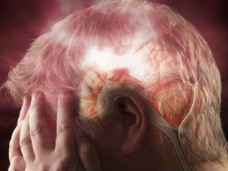科学家破解缺氧存活的脑细胞功能
研究发现大脑对中风有自我保护机制
早在85年前研究人员就已经发现,人类大脑中有一些细胞能够在中风等疾病引起的缺氧情况下存活。
现在英国科学家在《自然-医学》上撰文解释,人类大脑中的这些细胞是如何保护自己不受中风导致的破坏性损害的。
科学家希望能够研制出具有相似功能的药物,用类似的办法来保护整个大脑不受中风的损害。
治疗中风最关键的是时间,堵塞血管和血流的血块会阻止大脑细胞获得氧气和糖分,导致大脑细胞迅速死亡。
但是科学家在1926年发现,人类大脑中与记忆有关的海马区的一些细胞,却不像其它细胞那样会因缺氧而迅速死亡。
在老鼠身上所作的试验结果显示,那些能在缺氧情况下存活的大脑细胞开始生产一种叫做hamartin的蛋白质,迫使细胞保存能量,停止生产新蛋白质,并分解现存的蛋白。
当研究人员阻止细胞生产蛋白质hamartin时,这些细胞就会像其它细胞那样死亡。
研究大这些脑细胞为什么能在缺氧情况下存活的英国牛津大学阿拉斯泰尔·巴肯教授说,这是第一次发现大脑具有能够用来保护自己和维持脑细胞生命的机制。
科学家现在希望研制具有与这种大脑细胞同样功能的药物,用来抢救中风病人,在救护车到达时就立即让病人服用。
阿拉斯泰尔·巴肯教授说,这样可以争取时间,在抵达医院获得溶解血块药物之前,让大脑获得更长一点的存活时间。
科学家目前还不清楚,为什么海马区的一些细胞可以缺氧时存活,但附近的另一些细胞却不能。它们具有不同的功能。
那些会因缺氧而死亡的脑细胞是可塑性很强的CA1锥体细胞,与此相反,能在缺氧情况下存活的CA3细胞的适应性却不很强。
巴肯教授说,他的研究主要集中在如何保持大脑细胞的存活方面,研究结果不仅会使中风患者受益,还可能有益于阿尔兹海默症患者和脊椎损伤者等。
另一名研究中风的英国科学家沃尔顿博士说,此前的研究已经发现,某些脑细胞比其它脑细胞更具快速复苏的能力,而现在的最新研究则肯定了,是细胞中的一种蛋白质使它们具有这一功能。
沃尔顿博士说,将来研究人员可以尝试在其它细胞中使用这种蛋白质,减少由中风引起的脑损伤。
了解更多:
Tsc1 (hamartin) confers neuroprotection against ischemia by inducingautophagy
Nature Medicine, 24 February 2013 | doi:10.1038/nm.3097
Previous attempts to identify neuroprotective targets bystudying the ischemic cascade and devising ways to suppress it have failed totranslate to efficacious therapies for acute ischemic stroke. We hypothesizedthat studying the molecular determinants of endogenous neuroprotection in twowell-established paradigms, the resistance of CA3 hippocampal neurons to globalischemia and the tolerance conferred by ischemic preconditioning (IPC), wouldreveal new neuroprotective targets. We found that the product of the tuberoussclerosis complex 1 gene (TSC1), hamartin, is selectively induced by ischemiain hippocampal CA3 neurons. In CA1 neurons, hamartin was unaffected by ischemiabut was upregulated by IPC preceding ischemia, which protects the otherwisevulnerable CA1 cells. Suppression of hamartin expression with TSC1 shRNA viralvectors both in vitro and in vivo increased the vulnerability of neurons tocell death following oxygen glucose deprivation (OGD) and ischemia. In vivo,suppression of TSC1 expression increased locomotor activity and decreasedhabituation in a hippocampal-dependent task. Overexpression of hamartinincreased resistance to OGD by inducing productive autophagy through anmTORC1-dependent mechanism.
 此主题相关图片如下:1.jpg
此主题相关图片如下:1.jpg